Cats who live indoors live longer and healthier lives since they’re exposed to less threats like aggressive animals, cruel humans, toxic or poisonous substances, and diseases.
Whether you’re attempting to rescue a neighborhood stray or you’ve decided to keep your indoor/outdoor cat indoors for good, the change won’t be easy. Cats are creatures of habit, after all. Here are 7 steps you can take to get on the road to success and make the transition easier for both of you.
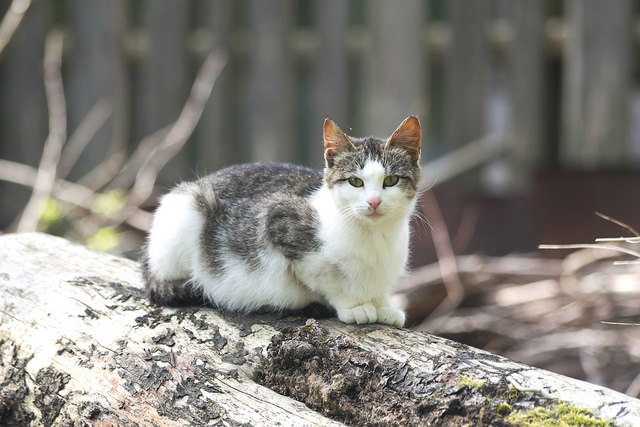
#1 – Integrate slowly
Don’t expect a cat who has lived outdoors for her whole life to easily transition to being an indoor cat immediately. Cats are very territorial and attached to their environments, and bringing an outdoor cat indoors can be very disorienting and anxiety-inducing. Instead of expecting her to become an indoor cat right away, ease her into it by feeding her indoors and keeping her inside for gradually longer stretches of time after she has finished eating. Give her plenty of time to explore, leave her scent by rubbing up against your furniture, and learn that your home is a safe and friendly place to be.
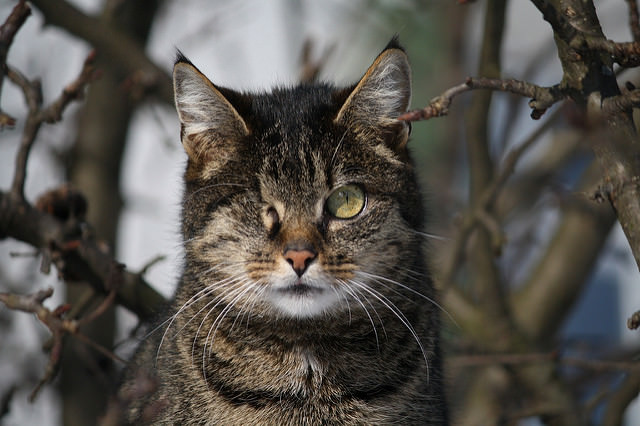
#2 – Introduce to litter box
A cat who has never lived indoors may have never used a litter box before. Most cats will instinctively understand its purpose though, even if they’ve never seen one. You should be able to simply show her where it is and scratch the litter a few times with your fingers to help her understand what it’s there for. Be patient with her while she figures it out. There may be a few messes along the way.
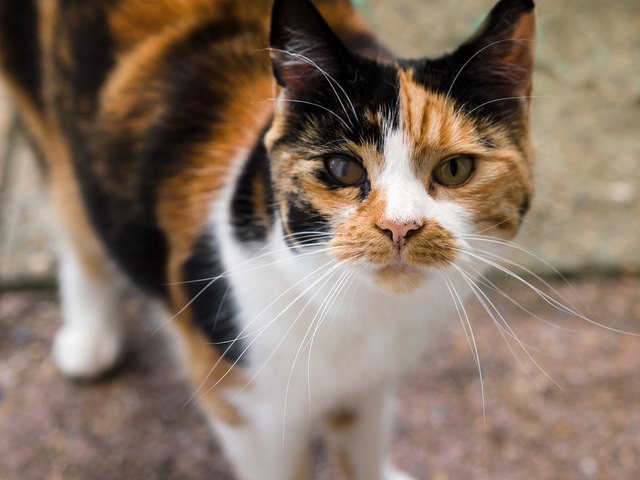
#3 – Provide a good scratching post
Scratching is a natural and healthy behavior for a cat. A cat who has lived her life outdoors has lived in a world filled with scratching posts in all sorts of different materials, textures, and configurations. In the outside world, scratching posts literally do grow on trees. Make sure you provide a good scratching post for her to dig her claws into or you might find yourself needing to replace your couch in a couple months.
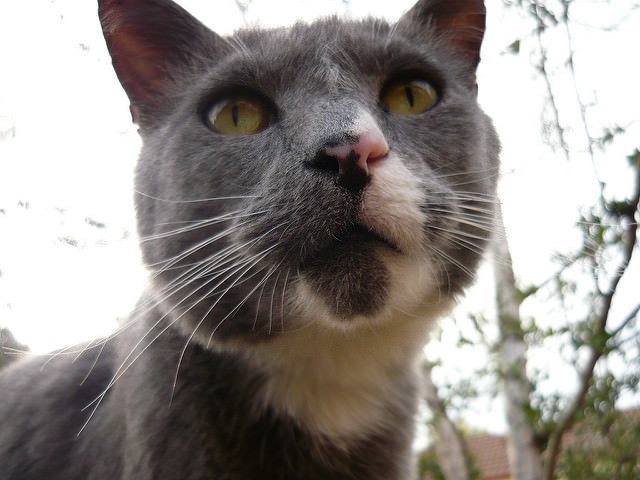
#4 – Make windows fun
For a cat, one of the best parts about living outdoors is the constant stimulation from all of the sounds, smells, and movements. She doesn’t have to give all of that up once she becomes an indoor cat. Place a cat tree or perch near a window so she has a good view, then place a bird feeder outside so she has some up-close-and-personal action.
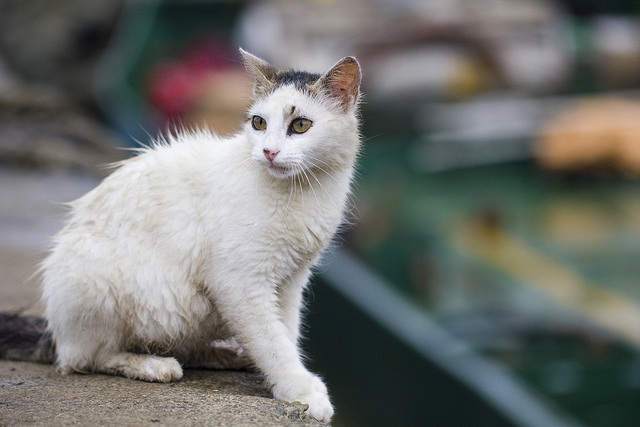
#5 – Grow cat grass
Outdoor cats can be accustomed to gnawing on grasses. Many cat professionals believe the extra fiber found in grass helps relieve upset stomachs. Cats may also simply like the texture of grass and the way it feels in their mouths. Help your cat acclimate to the indoors by providing fresh cat grass for her to nibble on. This can also help keep her away from your houseplants.
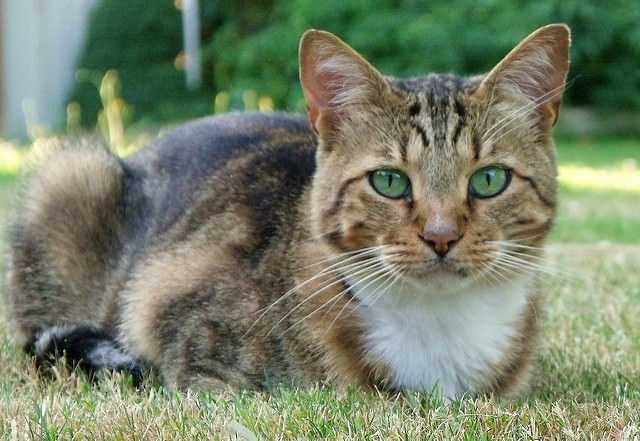
#6 – Activate the prey instinct
Cats have an instinctive need to hunt prey. Even cats who have lived indoors for their whole lives have very strong hunting instincts. An outdoor cat will have plenty of opportunities to hunt mice, insects, and other critters, but an indoor cat may need more help. Engage your cat in plenty of interactive play with a wand toy or laser pointer. If you aren’t home a lot or can’t commit to frequent play sessions, consider adding some battery-operated toys to your home.

#7 – Mimic outdoor perches
Cats naturally like to perch up high. When your cat was outdoors, she likely spent a lot of time sitting up in high tree branches or on the roofs of neighborhood buildings. Being up high gives her the advantage of staying out of reach from predators while being able to stalk prey. Your cat’s wildcat instincts will drive her to want to perch up high, even if she’s perfectly safe from predators in your home, and even if there’s no prey to hunt. Providing plenty of perches will help her feel safe and confident in her new home.

